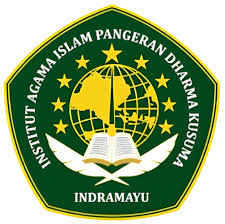Membangun Ekonomi Nasional dengan Landasan Akhlaq Islami dan Hukum Islam
DOI:
https://doi.org/10.55656/tjmes.v6i2.250Keywords:
National economy, Islamic ethics, Islamic law, inclusive, sustainableAbstract
Sustainable national economic development requires a strong foundation, not only technically and policy-wise but also ethically. This article discusses the importance of building a national economy based on Islamic morals and laws. The application of Islamic moral values in economic practices can create a more inclusive and sustainable economy. Similarly, Islamic law provides guidelines for transactions and fair wealth distribution. By integrating these principles, society can create a balanced and just economic environment, where blessings and prosperity are evenly distributed. The research findings indicate that Islamic moral and legal economic concepts, such as joint ownership, distributive justice, and prohibition of usury, are highly relevant in the context of national economic development. Some countries have attempted to implement Islamic economic principles in their national policies, though challenges remain. These challenges include mismatches with the dominant global economic system, lack of public understanding and awareness of Islamic moral values, and difficulties in balancing Islamic economic principles with modern economic needs. Despite these challenges, building a national economy on Islamic morals and laws holds significant potential benefits, including a more stable and sustainable financial system, reduced economic inequality, improved public welfare, and strengthened social and moral bonds within society.
References
Abuznaid, S. (2009). Business ethics in Islam: The glaring gap in practice. International Journal of Islamic and Middle Eastern Finance and Management, 2 (4), 278–288.
Bappenas. (2018). Masterplan Ekonomi Syariah Indonesia 2019-2024: Hasil Kajian Analisis Ekonomi Syariah di Indonesia. Kementerian Perencanaan Pembangunan Nasional/ Badan Perencanaan Pembangunan Nasional.
Carroll, A. B. (1991). The pyramid of corporate social responsibility: Toward the moral management of organizational stakeholders. Business Horizons, 34 (4), 39–48.
Chapra, M. U. (2000). Islam and the Economic Challenge. Islamic Foundation.
Dusuki, A. W., & Abdullah, N. I. (2007). Maqasid al-Shari’ah, maslahah, and corporate social responsibility. The American Journal of Islamic Social Sciences, 24 (1), 25–45.
El-Gamal, M. A. (2006). Islamic Finance: Law, Economics, and Practice. Cambridge University Press.
Elkington, J. (1998). Cannibals with Forks: The Triple Bottom Line of 21st Century Business. New Society Publishers.
Fischer, F. (2003). Reframing Public Policy: Discursive Politics and Deliberative Practices. Oxford University Press.
Grindle, M. S., & Thomas, J. W. (1991). Public Choices and Policy Change: The Political Economy of Reform in Developing Countries. Johns Hopkins University Press.
Hasan, A., Shafira, D. S., Azfa, N., Nurainuniisa, S., & Faturrahman. (2024). Problematika Sistem Ekonomi Islam Di Indonesia. Jurnal Al-Idārah, Volume 5, No 1.
J. Moleong, L. (2013). Metodologi Penelitian Kualitatif. Bandung: Rosdakarya.
Kahf, M. (1999). The Performance of the Institution of Zakah in Theory and Practice. International Journal of Islamic Financial Services, 1 (1).
Leavy, Patricia (ed.). (2020). The Oxford Handbook of Qualitative Research (2nd edn). Oxford Handbooks. https://doi.org/10.1093/oxfordhb/9780190847388.001.0001
Lewis, M. K., & Latifa M, A. (2001). Islamic Banking. Edward Elgar Publishing.
Maria Helena Andre, et. all. (2018). Tujuan Pembangunan Millenium; Referensi Manual Serikat Pekerja pada Agenda untuk Pembangunan Berkelanjutan 2030/ Organisasi Perburuhan Internasional. Kantor Jakarta: ILO.
Maulana, M. (2020). Model Transaksi Ekonomi Kontemporer Dalam Islam. Banda Aceh: Dinas Syariat Islam Aceh.
Patton, M. Q. (2008). UtilizationFocused Evaluation. Sage Publications.
Pressman, J. L., & Wildavsky, A. B. (1984). Implementation: How Great Expectations in Washington Are Dashed in Oakland. University of California Press.
Putra, M. D. (2021). Negara Kesejahteraan (Welfare State) dalam Perspektif Pancasila. Likhitaprajna: Jurnal Ilmiah, Volume 23, Nomor 2. https://media.neliti.com/media/publications/501075-none-432e7d02.pdf
Rofiqoh, I., & Zulhawati. (2020). Metode Penelitian Kuantitatif, Kualitatif, dan Campuran. Yogyakarta: Pustaka Pelajar.
Sabatier, P. A., & Mazmanian, D. (1980). The Implementation of Public Policy: A Framework of Analysis. Policy Studies Journal, 8 (4).
Siddiqi, M. N. (1981). Muslim Economic Thinking: A Survey of Contemporary Literature. International Centre for Research in Islamic Economics.
Suradi. (2012). Pertumbuhan Ekonomi Dan Kesejahteraan Sosial (Economic Growth And Sosial Welfare). Informasi, Vol. 17, No. 03. https://media.neliti.com/media/publications/52806-ID-pertumbuhan-ekonomi-dan-kesejahteraan-so.pdf
Tjosvold, D. (1988). Cooperative and competitive interdependence: Collaboration between departments to serve customers. Group & Organization Studies, 13 (3), 274–289.
Warde, I. (2000). Islamic Finance in the Global Economy. Edinburgh University Press.








